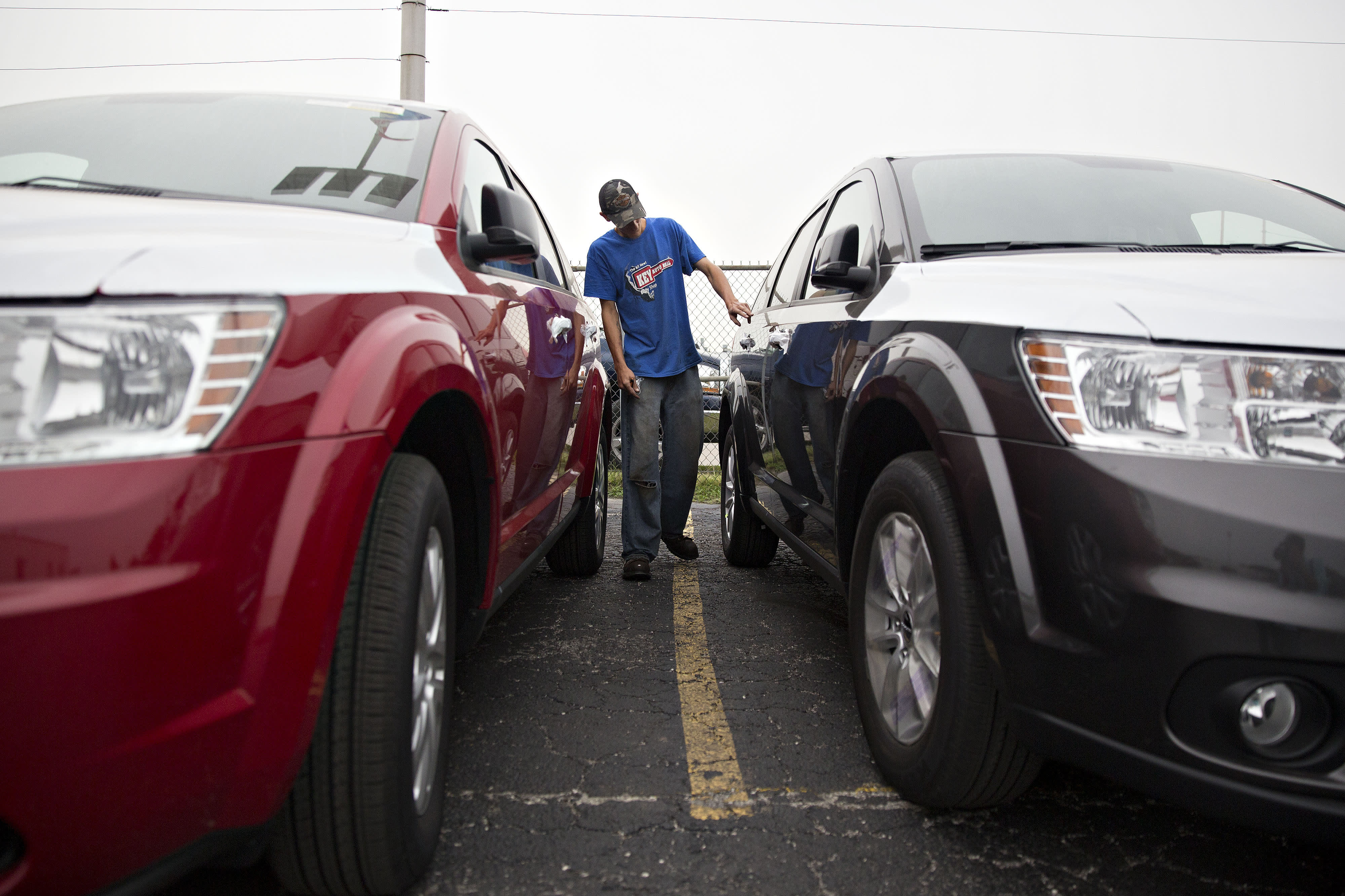Even though February isn’t known as a big sales month for cars, you’ll likely find some decent deals if you head to the dealership over this three-day holiday weekend.
While some advertised specials may be pegged to Presidents Day, many deals last for the month. And with more of last year’s models still hanging around than usual, dealerships are eager to get those cars off their lots.
“That means heavy discounts on 2019 models … and that drags down the price on those 2020 models, too,” said Ivan Drury, senior manager of insights at Edmunds.com.
The Key Auto Mall car dealership in Moline, Illinois.
Daniel Acker | Bloomberg | Getty Images
Last month, the average automaker discount was an estimated $4,136 — the first time it’s ever been above $4,000 in January, according to J.D. Power and LMC Automotive.
Three brands in particular — Volkswagen, Ford and Nissan — have high levels of 2019 inventory, said Kelsey Mays, senior consumer affairs editor at Cars.com.
While about 20% in the Cars.com database are last year’s models, for Ford it’s almost 1 in 3 cars, Mays said. At Nissan it’s about 1 in 4, and at Volkswagen, 2 in 5.
“There’s no getting around the fact that last year’s cars are old cars at this point,” Mays said. “So consumers should see pretty good incentives on 2019 models.”
For instance, Chevrolet is offering up to $6,500 off the 2019 Silverado 1500 LD Double Cab, whose price starts at about $34,500. A 2019 Nissan Sentra (starting price of about $18,000) comes with up to $2,000 in incentives and 0% financing for 60 months if you can qualify.
You also may find 2020 cars with good offers. For instance, the 2020 Chevrolet Bolt EV — an electric car starting at $36,620 — comes with up to $8,500 off the sticker price or 0% financing for six years, if you can qualify.
The average amount paid for a new car — now roughly $37,000 — has continued to climb due partly to shifting consumer preference to pricier SUVs and pickup trucks and away from lower-cost sedans and small cars. In fact, those smaller options accounted for just 27% of retail sales last month, down from almost 31% a year ago, according to J.D. Power estimates.
If you’re in the market for a new car, there are some things to keep in mind about any deals you see, experts say.
For starters, don’t assume a manufacturer’s discount means there’s no additional wiggle room in the price.
“That [reduced price] should be the starting point for negotiations,” Mays said.
There’s no getting around the fact that last year’s cars are old cars at this point.
Kelsey Mays
senior consumer affairs editor at Cars.com
Additionally, make sure you compare dealerships. While they all generally give you the manufacturer’s discount, one may give you a better deal on a trade-in, a lower interest rate on your loan or some other perk.
Even once you find the best deal, Mays said, there’s another number that you should focus on: the “out-the-door” price.
“That amount includes all taxes and fees and you should negotiate that number,” he said.
One mistake that consumers can make is focusing on what they can afford in monthly payments instead of the total purchase price.
“That can put you in a car you can’t really afford, for 72 months or 84 months with a higher interest rate,” Mays said.
In that scenario, if you go to trade in the car before you’ve paid it off, there’s a good chance the trade-in value would be less than what you owe. And many consumers in that situation end up rolling that “negative equity” into yet another loan that puts them in an upside-down situation right off the bat.
“It doesn’t matter how good a price you got on the car because you’ll be paying a loan that’s for far more than the car is worth,” said certified financial planner Malcolm Ethridge, an executive vice president and financial advisor at CIC Wealth in Rockville, Maryland.
Experts also recommend getting pre-approved financing before heading to the dealership. If you’re offered better terms from the dealer, great. If not, you have the best deal you could find.
More from Personal Finance:
Here are nine ways you can cut your 2019 tax bill
Trump wants to extend his tax overhaul. What it means for you
How your ex can ruin your financial plans long after divorce
The average interest rate on auto loans is 5.7%, according to Edmunds. Separate research from WalletHub shows that the best rates are snagged through manufacturer financing (34% below average), followed by credit unions (12% below average).
Auto lenders have slowly been tightening their standards: In the fourth quarter of 2019, the median credit score for new loans was 715, according to data from the Federal Reserve Bank of New York. That’s up from 711 in the previous quarter.
The number of accounts that are in serious delinquency — those 90 or more days behind — has been slowly rising for about five years, although the share remains relatively low at just under 5%.
